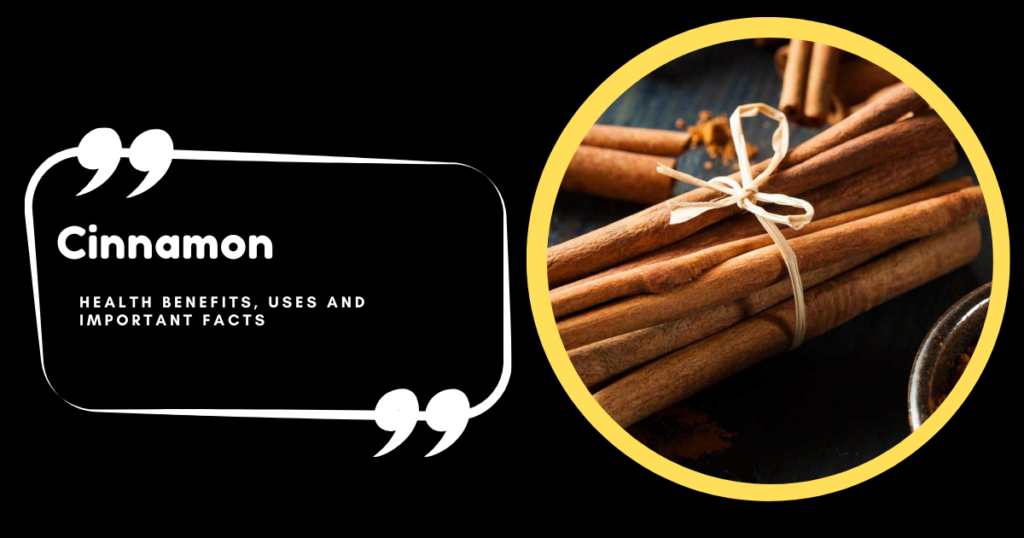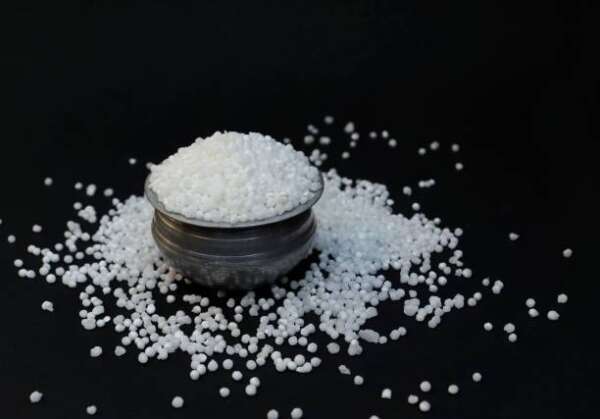Cinnamon, derived from the inner bark of trees belonging to the Cinnamomum genus, has enchanted civilizations for millennia with its captivating aroma and myriad of health benefits. Let’s embark on a journey to uncover the remarkable attributes of cinnamon, supported by scientific research and centuries of traditional wisdom.
1. A Rich Tapestry of History: Cinnamon’s illustrious history traces back to ancient civilizations, where it was revered not only for its aromatic allure but also for its medicinal properties. From ancient Egypt to the spice routes of Asia, cinnamon was treasured as a precious commodity, symbolizing wealth, prestige, and healing.
2. The Essence of Health: At the heart of cinnamon lies a treasure trove of medicinal compounds, chief among them being cinnamaldehyde. This potent compound endows cinnamon with antioxidant, anti-inflammatory, antimicrobial, and even neuroprotective properties, making it a formidable ally in the quest for optimal health.
3. Antioxidant Abundance: Cinnamon boasts a rich array of antioxidants, including polyphenols, which combat oxidative stress and inflammation within the body. These antioxidants scavenge free radicals, neutralizing their harmful effects and safeguarding cells from premature aging and disease.
4. A Beacon of Anti-Inflammatory Relief: Chronic inflammation is a common denominator in many chronic diseases, from heart disease to arthritis. Cinnamon’s anti-inflammatory prowess has been validated by scientific studies, demonstrating its ability to quell inflammatory pathways and alleviate symptoms associated with inflammatory conditions.
5. Nurturing Heart Health: The heart-protective benefits of cinnamon extend to its ability to modulate cholesterol levels, triglycerides, and blood pressure. By promoting healthy lipid profiles and supporting cardiovascular function, cinnamon emerges as a natural ally in the fight against heart disease and stroke.
6. Balancing Blood Sugar: For individuals grappling with diabetes or seeking to stabilize blood sugar levels, cinnamon offers a ray of hope. Through its unique mechanism of action, cinnamon enhances insulin sensitivity, facilitates glucose uptake by cells, and regulates blood sugar levels, empowering individuals to better manage their metabolic health.
7. Cognitive Enhancement: Emerging research suggests that cinnamon may harbor neuroprotective properties, offering potential benefits for cognitive function and brain health. Compounds found in cinnamon have shown promise in mitigating neurodegenerative processes and preserving cognitive function, paving the way for novel approaches to brain health.
8. Immune Support and Defense: Cinnamon’s antimicrobial properties make it a valuable asset in bolstering the body’s immune defenses against infections. Whether combating bacteria, fungi, or viruses, cinnamon’s potent compounds help fortify the body’s natural defenses and promote resilience against microbial invaders.
9. Culinary Versatility: Beyond its medicinal properties, cinnamon adds depth and flavor to a myriad of culinary delights. From decadent desserts to savory dishes and aromatic beverages, cinnamon’s warm and inviting aroma elevates culinary creations, delighting the senses and tantalizing the taste buds.
10. Selecting Your Cinnamon Wisely: When incorporating cinnamon into your daily regimen, it’s essential to choose quality sources, such as Ceylon cinnamon, renowned for its lower coumarin content and superior flavor profile. Whether in the form of powder, sticks, or essential oil, opting for high-quality cinnamon ensures optimal potency and purity.
Cinnamon, derived from the bark of trees belonging to the genus Cinnamomum, is a beloved spice cherished for its aromatic flavor, culinary versatility, and numerous health benefits. With a rich history dating back to ancient times, cinnamon has been prized for its medicinal properties and culinary uses across cultures worldwide. Let’s delve into the fascinating world of cinnamon, exploring its health benefits, culinary applications, and intriguing facts that make it a true culinary gem.
Understanding Cinnamon
Origin and Distribution: Cinnamon has a storied history, believed to have originated in Sri Lanka and other regions of South Asia. Today, it is cultivated in various tropical and subtropical regions worldwide, including Indonesia, China, Vietnam, and India. The spice is harvested from the inner bark of cinnamon trees, which are evergreen trees belonging to the Lauraceae family.
Nutritional Profile: Cinnamon is not only renowned for its distinct flavor but also for its impressive nutritional profile. It contains essential oils, antioxidants, and various bioactive compounds, including cinnamaldehyde, which contributes to its characteristic aroma and health-promoting properties. Additionally, cinnamon is a good source of manganese, calcium, and dietary fiber, adding to its nutritional value.
Health Benefits of Cinnamon
- Antioxidant-Rich: Cinnamon is packed with potent antioxidants, including polyphenols and flavonoids, which help protect the body against oxidative stress and inflammation. These antioxidants play a crucial role in neutralizing free radicals, reducing the risk of chronic diseases and supporting overall health and well-being.
- Anti-Inflammatory Properties: Studies suggest that cinnamon possesses powerful anti-inflammatory properties, which may help alleviate inflammation and related health conditions. By inhibiting inflammatory pathways in the body, cinnamon may contribute to reducing the risk of chronic diseases, such as heart disease, diabetes, and certain types of cancer.
- Blood Sugar Regulation: Cinnamon has been shown to improve insulin sensitivity and regulate blood sugar levels, making it beneficial for individuals with diabetes or insulin resistance. The spice helps enhance the uptake of glucose by cells, thereby lowering blood sugar levels and improving glycemic control.
- Heart Health Support: Regular consumption of cinnamon may promote heart health by lowering cholesterol levels, triglycerides, and blood pressure. These effects contribute to reducing the risk of cardiovascular diseases, such as heart attacks and strokes, and supporting overall cardiovascular function.
- Brain Health Enhancement: Some research suggests that cinnamon may have neuroprotective properties and could help enhance cognitive function and memory. The antioxidants present in cinnamon may help protect brain cells from damage and age-related decline, potentially reducing the risk of neurodegenerative diseases, such as Alzheimer’s and Parkinson’s.
Culinary Uses of Cinnamon
Culinary Spice: Cinnamon is a versatile spice used in a wide range of sweet and savory dishes, adding warmth, depth, and complexity to culinary creations. It is commonly used in baking, desserts, beverages, curries, stews, and marinades, imparting its distinctive flavor and aroma to various cuisines worldwide.
Beverage Enhancer: Cinnamon is a popular addition to hot beverages such as coffee, tea, and hot chocolate, infusing them with its aromatic fragrance and subtle spiciness. It is often used as a garnish or flavoring agent in cocktails, smoothies, and mulled wines, enhancing their taste and appeal.
Condiment and Seasoning: Ground cinnamon is frequently used as a condiment and seasoning in both sweet and savory dishes, sprinkled over oatmeal, yogurt, fruit salads, and roasted vegetables. It pairs well with other spices such as nutmeg, cloves, and ginger, creating complex flavor profiles in culinary preparations.
Important Facts About Cinnamon
- Varietal Diversity: There are several varieties of cinnamon available, with Ceylon cinnamon (Cinnamomum verum) and Cassia cinnamon (Cinnamomum cassia) being the most common. While both varieties share similar flavor profiles, Ceylon cinnamon is considered to be of higher quality and is prized for its sweeter, more delicate taste and lower coumarin content.
- Medicinal Uses: Cinnamon has been used medicinally for centuries in traditional herbal medicine systems for its various health benefits. It has been employed to alleviate digestive issues, respiratory ailments, menstrual discomfort, and other common ailments. Today, cinnamon supplements and extracts are also available for therapeutic purposes.
- Cultural Significance: Cinnamon holds cultural significance and symbolism in many societies and traditions, often associated with warmth, hospitality, and celebration. It has been used in religious ceremonies, rituals, and festive occasions across cultures, reflecting its esteemed status as a precious spice throughout history.
In Conclusion
Cinnamon is more than just a spice; it is a culinary treasure with a wealth of health benefits and cultural significance. Whether sprinkled over your morning oatmeal, infused into a fragrant curry, or steeped in a soothing cup of tea, cinnamon adds depth and flavor to culinary creations while promoting overall health and well-being. Embrace the magic of cinnamon and savor its aromatic delights as you embark on a journey of culinary exploration and sensory pleasure.
In conclusion, cinnamon is a testament to nature’s bountiful offerings, offering a symphony of health benefits, culinary delights, and timeless traditions. Whether sipped in a comforting chai latte, sprinkled atop a nourishing bowl of oatmeal, or enjoyed as a fragrant spice blend, let cinnamon’s vibrant essence infuse your life with vitality, wellness, and a dash of irresistible flavor.



